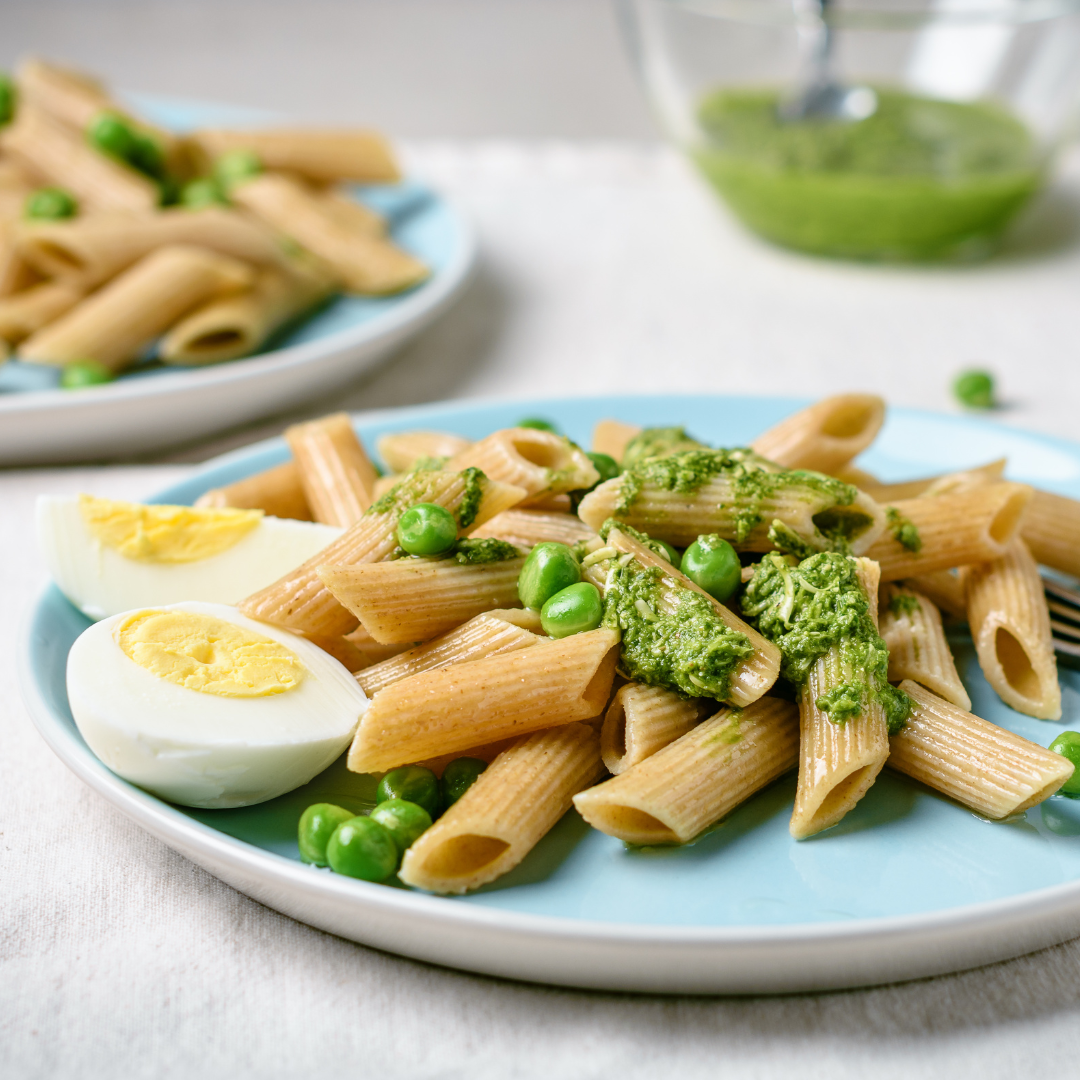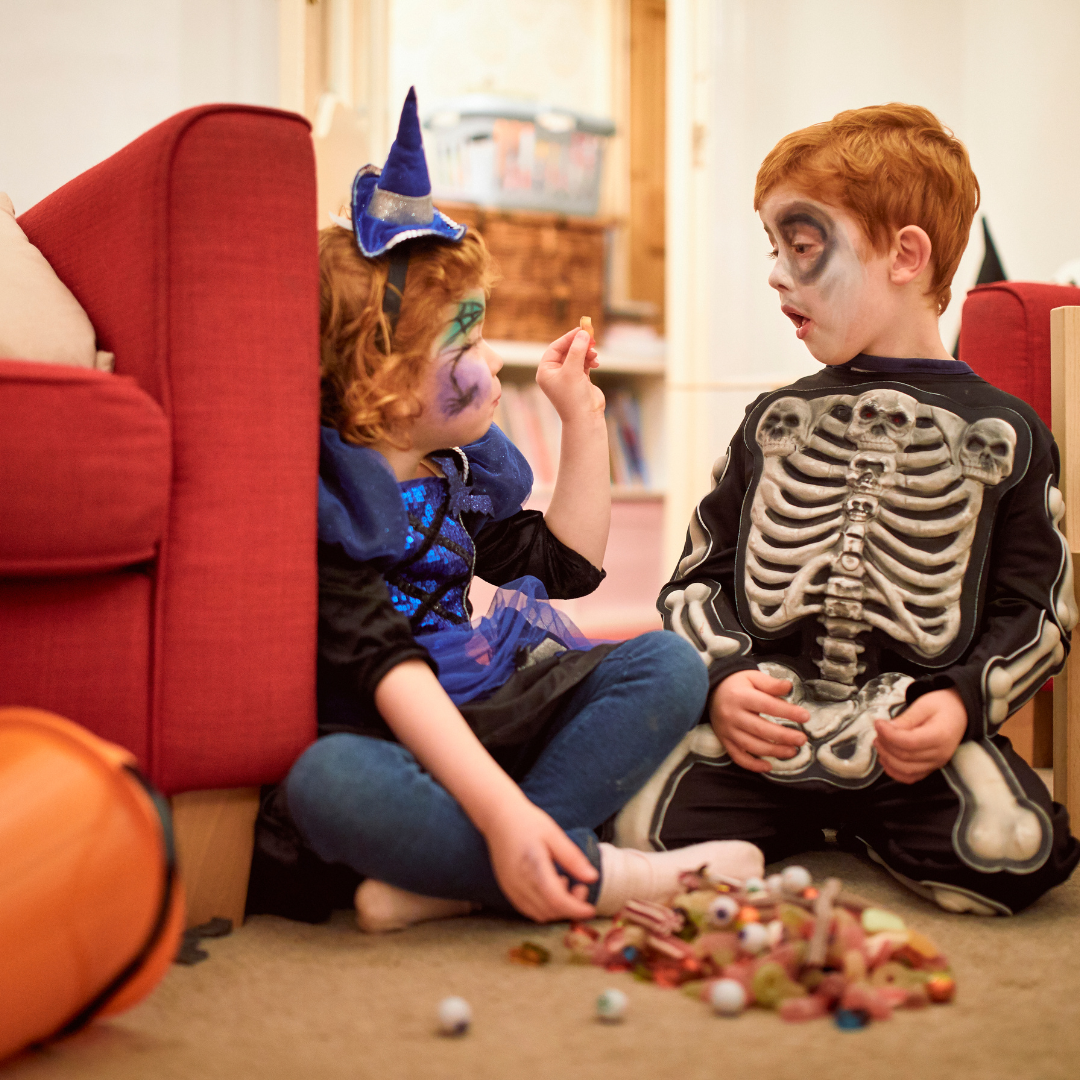
Halloween is an exciting time for children, filled with costumes, decorations, and, of course, an abundance of candy. However, for many parents, Halloween’s sugar rush can be concerning, raising questions about how best to manage candy consumption without dampening the festive spirit. With the right strategies, parents can encourage healthy habits while still allowing children to enjoy their Halloween treats.
In this blog, we’ll explore effective ways to manage Halloween candy, provide tips on controlling candy intake, and discuss how understanding your child’s unique needs through genetic insights, such as those from CircleDNA’s Premium DNA Test, can guide you towards personalised, health-conscious choices. By striking a balance between fun and health, you can make Halloween a positive experience that supports your child’s well-being.
The Halloween Candy Dilemma: Balancing Fun and Health
Halloween is known for its indulgent nature, with children collecting bags of sweets that can last well beyond October 31st. While it’s natural for kids to get excited about candy, the sheer amount of sugar and calories in Halloween treats can be a cause for concern.
Why Excessive Sugar Intake Matters
Excessive sugar consumption can lead to several short-term and long-term health issues, particularly in children. Here are some reasons why it’s essential to monitor and control candy intake:
- Risk of Tooth Decay: Sugar is a leading cause of cavities, especially in young children whose dental hygiene habits may not yet be consistent.
- Blood Sugar Spikes: A large intake of sugary foods can cause rapid blood sugar spikes, leading to energy crashes and irritability.
- Impact on Weight and Metabolism: Regularly consuming large amounts of sugar can contribute to weight gain and metabolic issues, which are risk factors for long-term health problems like obesity and diabetes.
- Influence on Eating Habits: Developing healthy eating habits early on is essential. Too much Halloween candy can encourage children to seek sugary foods more frequently.
Finding a Healthy Balance
Striking a balance is key. Halloween is an annual celebration, and banning candy entirely can make it seem more attractive. Instead, focus on allowing your children to enjoy their treats in moderation while teaching them about healthy eating habits.
Tips for Managing Halloween Candy Consumption
With careful planning, parents can help children enjoy their Halloween treats without overindulging. Here are some practical tips for managing candy intake and promoting mindful consumption.
1. Set Expectations Before Trick-or-Treating

One of the best ways to manage Halloween candy consumption is by setting expectations with your child before they start trick-or-treating. Discuss how much candy they can collect and explain that the treats will be enjoyed over several days, not all at once.
How to Approach the Conversation:
- Explain the Importance of Moderation: Use age-appropriate language to help your child understand that while candy is enjoyable, it should be consumed in small amounts.
- Establish a Limit on Consumption: For example, you might decide that your child can enjoy two or three pieces of candy on Halloween night, with the remaining treats spread out over the following days.
Setting clear expectations can help prevent arguments or disappointment later, making it easier for both you and your child to stick to a balanced approach.
2. Offer a Healthy Meal Before Trick-or-Treating
Before heading out for Halloween festivities, make sure your child has a nutritious, filling meal. A well-balanced dinner that includes protein, fibre, and healthy fats can help stabilise blood sugar and reduce the urge to overeat candy.

Healthy Pre-Halloween Meal Ideas:
- Lean Protein with Vegetables: Grilled chicken or fish with a side of roasted vegetables provides essential nutrients and keeps hunger at bay.
- Whole-Grain Pasta with Protein: A pasta dish with a source of protein, such as lean meat or beans, and a side salad can keep children feeling full.
- Smoothies Packed with Nutrients: A smoothie with Greek yoghurt, fruit, and a handful of spinach provides both protein and fibre.
A healthy meal ensures that your child isn’t overly hungry when they start trick-or-treating, which can help reduce the likelihood of excessive candy consumption.
3. Practice Portion Control with a Candy Stash
After trick-or-treating, take some time to go through the candy stash with your child. Instead of allowing unrestricted access, create a candy stash that is portion-controlled. This way, your child can enjoy their sweets over time rather than consuming them all at once.
Portion Control Tips:
- Divide Treats into Daily Portions: Allocate a small number of treats for each day. For example, create a weekly schedule where your child can have one or two pieces of candy each day.
- Use Small Containers or Bags: Place individual portions of candy in small containers or bags, making it easy for your child to stick to the daily limit.

Encouraging portion control not only reduces excessive sugar intake but also teaches your child about moderation, a skill that will benefit them in the long run.
4. Encourage Sharing and Donating Candy
After Halloween, consider donating some of the extra candy to organisations that accept donations for families in need, or encourage your child to share their treats with friends and family members. Teaching your child the value of sharing and generosity can make the candy stash less overwhelming while promoting a sense of community and kindness.
Some organisations and dental offices participate in Halloween candy buy-back programmes, allowing children to trade their candy for small toys or other items. This can be a fun and rewarding way to reduce candy intake while supporting charitable causes.
5. Opt for Healthier Halloween Treats
If you’re giving out treats, consider providing healthier alternatives or non-food items that are just as exciting for children. Many kids enjoy toys and other small items, which can make great candy substitutes.
Healthy Treat Ideas:
- Mini Packets of Nuts or Seeds: Nuts and seeds are tasty and nutritious, providing healthy fats and protein.
- Fruit Snacks with No Added Sugar: Look for fruit-based snacks that don’t contain added sugars or artificial ingredients.
- Non-Food Treats: Stickers, pencils, small toys, or temporary tattoos are popular choices that add a fun twist to trick-or-treating.

By offering alternatives, you contribute to a healthier Halloween experience and reduce the volume of sugary treats collected.
6. Teach Children About Mindful Eating
Teaching your child to eat mindfully is one of the best ways to help them develop a healthy relationship with food. Encourage them to savour each treat rather than eating quickly or absent-mindedly.
How to Encourage Mindful Eating:
- Focus on Taste and Texture: Encourage your child to notice the flavours and textures of each candy piece. This helps them appreciate the treat rather than eating on autopilot.
- Eat Candy Without Distractions: When enjoying their Halloween candy, have your child sit at the table without distractions such as television or mobile devices. This can help them feel satisfied with smaller amounts.
Mindful eating promotes a more balanced approach to food, making it easier for children to enjoy their treats without overindulging.
7. Stay Active Throughout Halloween Season
Physical activity helps regulate blood sugar and supports overall health, making it an essential part of managing Halloween candy consumption. Plan activities that keep your child active and engaged during the Halloween season.
Activity Ideas:
- Organise a Halloween-Themed Scavenger Hunt: Instead of trick-or-treating, create a scavenger hunt that encourages children to walk, run, or explore their surroundings.
- Visit a Pumpkin Patch or Corn Maze: Seasonal activities like these provide plenty of walking and physical activity while enjoying the Halloween spirit.
- Incorporate Outdoor Games: Play Halloween-themed games like “Monster Tag” or “Zombie Chase” to keep kids moving and active.

Incorporating physical activity alongside Halloween treats helps maintain a balanced approach to health and reduces the impact of extra sugar intake.
CircleDNA: Personalising Halloween Candy Management with Genetic Insights
Every child has unique dietary needs and responses to sugar, some of which are influenced by genetics. Knowing your child’s genetic predispositions can help you make informed decisions about managing their candy intake, particularly if they have specific sensitivities to sugar or a higher risk of dental issues. CircleDNA’s Premium DNA Test provides personalised insights that can support parents in making health-conscious choices based on their child’s genetic profile.
Relevant CircleDNA Reports
CircleDNA offers a range of reports that provide valuable insights into dietary needs, sugar sensitivity, and metabolic health. Here’s how these insights can guide you in managing your child’s Halloween candy intake:
- Diet and Nutrition Report: This report analyses how your child’s body processes different macronutrients, including carbohydrates and sugar. If your child is predisposed to sugar sensitivity or has a slower carbohydrate metabolism, knowing this information can help you adjust their diet to balance candy intake with healthy meals.
- Metabolism Report: Children with a slower metabolism may be more susceptible to weight gain from high sugar intake. CircleDNA’s metabolism report can help you tailor your child’s diet and exercise plan to support their metabolic health.
- Stress and Sleep Report: Sugar consumption can affect sleep quality and energy levels. By understanding your child’s sleep patterns and stress responses, you can adjust their candy intake to avoid sugar-related sleep disruptions.
With these insights, parents can create a personalised approach to Halloween candy management that considers their child’s unique genetic profile. CircleDNA provides the information you need to support your child’s health while allowing them to enjoy the festivities in moderation.
Conclusion: A Healthier, Happier Halloween
Halloween is a time of excitement and tradition, and candy is often a big part of the celebration. By adopting a balanced approach, you can help your child enjoy Halloween treats while teaching them valuable lessons about moderation and health. From setting expectations to encouraging mindful eating, there are numerous ways to manage Halloween candy consumption effectively.
CircleDNA’s Premium DNA Test offers personalised insights that allow parents to make informed decisions about their child’s diet and lifestyle. By understanding your child’s unique genetic predispositions, you can create a health-conscious approach to Halloween that aligns with their individual needs. Empowered with knowledge, you can help your child develop a positive relationship with food and health that lasts well beyond the Halloween season.
With the right strategies, Halloween can be a celebration that embraces both fun and health, ensuring that your child enjoys the holiday while staying on track for lifelong wellness.
References
American Academy of Paediatrics. (2021). Sugar and children’s health. Retrieved from https://www.aap.org
British Dental Association. (2020). Sugar and dental health in children. Retrieved from https://www.bda.org
Hagger, M. S., & Chatzisarantis, N. L. D. (2016). The impact of mindful eating on sugar intake. Appetite, 105, 485-491. doi:10.1016/j.appet.2016.06.034
Public Health England. (2021). Reducing sugar consumption in children. Retrieved from https://www.gov.uk






